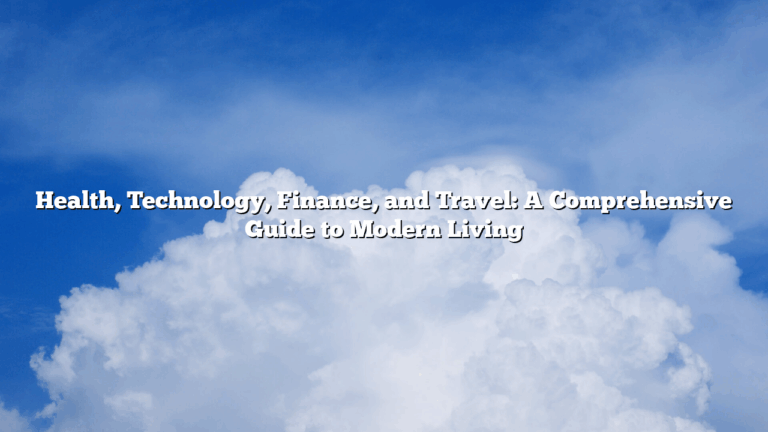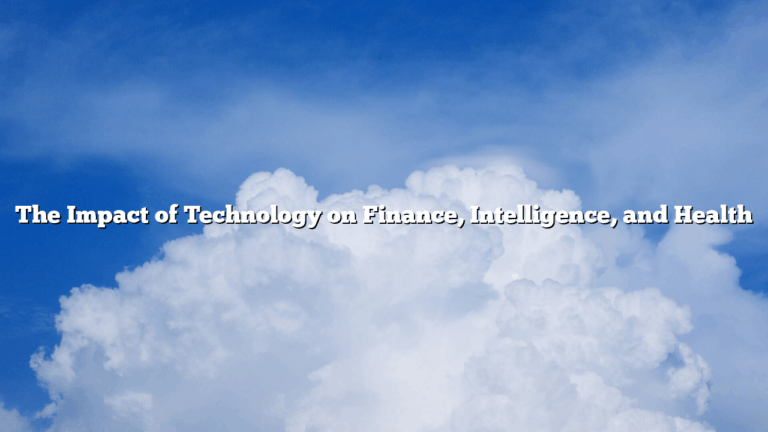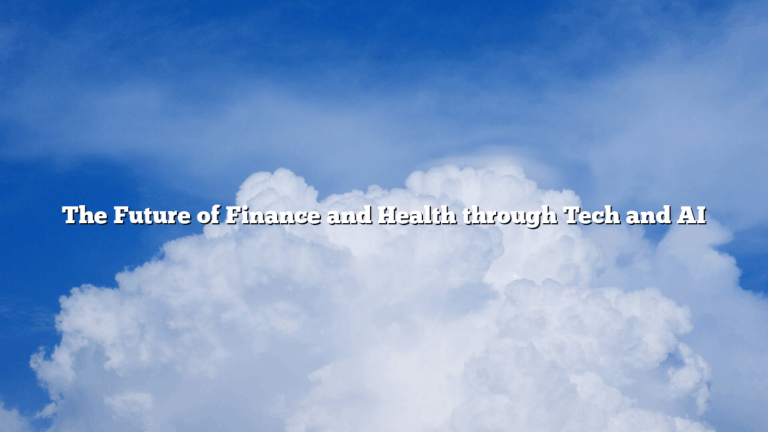
Wellness in the Modern Age: How Innovation, Money Management, and Exploration Impact Our Lives
In today’s fast-paced world, staying healthy is more important than ever. With the rise of technology and the increasing complexity of global finance and travel, our lifestyle choices are being shaped by multiple interconnected factors. This article explores how well-being, technology, finance, and global mobility are influencing each other in the modern world.
How Technology is Reshaping Health
The intersection of health and technology has led to innovative changes. From fitness trackers to AI-powered diagnostics, people now have more tools to monitor their well-being. batavia4d track everything from heart rate to sleep cycles, giving users instant feedback into their health status.
Medical professionals use telemedicine to consult patients from afar, saving time and resources. AI helps in diagnosing diseases faster and more accurately. Robotics is even being used in surgery, increasing precision and reducing recovery time.
Wearable devices also promote preventive care by encouraging users to meet daily activity goals. These advancements give people the ability to take charge of their health like never before.
The Financial Side of Wellness
Healthcare can be expensive, but technology is helping to make it more accessible. Digital platforms offer customized health plans, and fintech companies are creating new ways for users to budget medical costs.
With the rise of Health Savings Accounts (HSAs) and online financial planning tools, people can now plan ahead more effectively. Apps like YNAB allow users to track spending and allocate funds for medical needs.
Additionally, online crowdfunding platforms such as GoFundMe have made it easier for patients to raise money for treatments not covered by insurance. These tools show how finance and technology work together to make healthcare more manageable.
How Technology is Changing the Financial Landscape
Fintech has completely transformed how we interact with money. Mobile banking, digital wallets, and blockchain technology have made financial transactions faster and more secure.
Online banking services allow users to pay bills, invest, and transfer money with just a few taps. Cryptocurrencies like Bitcoin and Ethereum are gaining popularity, and decentralized finance (DeFi) is opening up investment opportunities to more people.
Meanwhile, robo-advisors are helping individuals invest wisely based on algorithms and user preferences. These platforms reduce the need for traditional financial advisors and often come with lower fees.
The convenience of managing finances on a smartphone has led to greater financial literacy and independence. With real-time updates and user-friendly interfaces, people are making smarter choices about saving and investing.
Healthy Travel in a Connected World
Travel is no longer just a leisure activity—it’s an essential part of life and work. But health risks like pandemics and foodborne illnesses have made travelers more cautious. Thankfully, technology offers solutions.
Before traveling, people can check health alerts, vaccine requirements, and climate conditions using apps and websites. Wearables can track exposure to harmful environments, and translation apps help users communicate with doctors abroad.
Virtual travel insurance platforms make it easy to buy coverage tailored to specific destinations and activities. Moreover, digital nomads can now access international health insurance designed for remote workers.
These tools ensure that people stay healthy while exploring the world, combining freedom with safety.
The Economic Impact of Travel and Tech
Tourism is a major driver of the global economy, contributing trillions annually. Technology has made travel more accessible and efficient through online booking platforms, digital passports, and smart hotels.
Apps like Airbnb let users find accommodation within their budget, and ride-sharing services reduce transportation costs. Digital currencies are also starting to play a role in travel, especially in borderless transactions.
Travel fintech is also on the rise. Some credit cards offer travel-focused rewards, while certain apps track spending in different currencies and suggest budgeting tips while abroad.
Business travelers benefit from expense-tracking apps that sync directly with corporate accounts, simplifying reimbursements and tax reporting.
Global Connectivity: A Future of Opportunities
The synergy between health, technology, finance, and travel opens up endless possibilities. As more people work remotely, access digital healthcare, and manage finances online, a new way of living emerges—one that is flexible, independent, and borderless.
However, this lifestyle requires responsibility. Data privacy, cybersecurity, and financial risks must be considered. As we embrace digital tools, we must also educate ourselves to use them wisely.
The future will likely see even greater integration of AI in healthcare, blockchain in travel documentation, and virtual reality in financial education. These trends point to a world where individuals have the tools to live smarter, healthier, and more financially secure lives.
Your Journey in the Modern World
Whether you’re monitoring your fitness, saving for the future, or exploring the globe, the digital era has created powerful tools to help you thrive. By understanding how health, technology, finance, and travel interact, you can make informed choices that lead to a more fulfilling life.
So, keep exploring, keep learning, and leverage these advances to build a future where you are in control.



